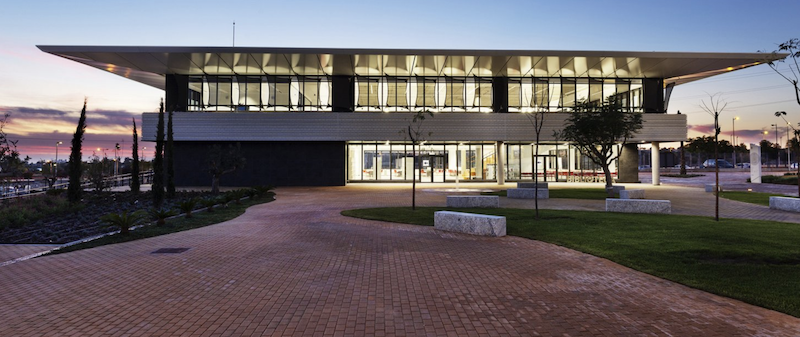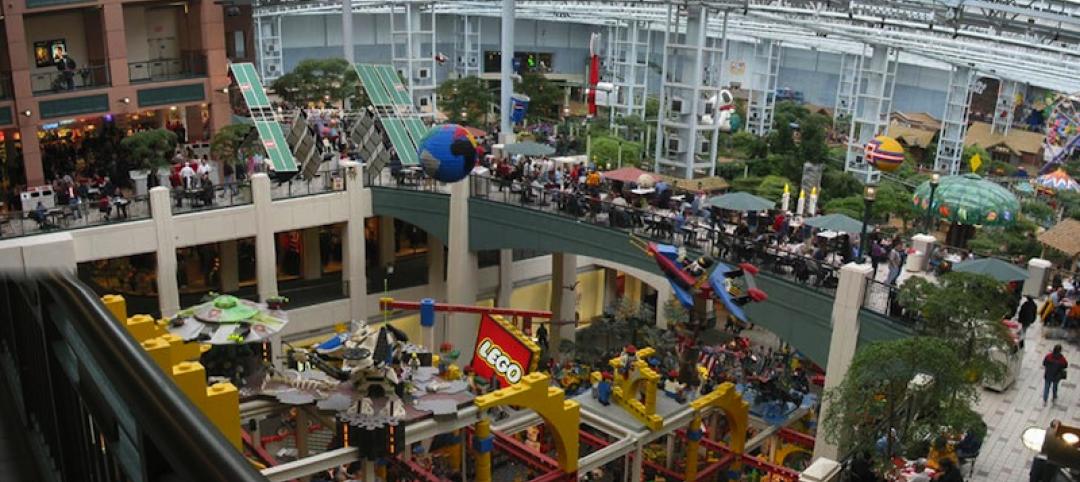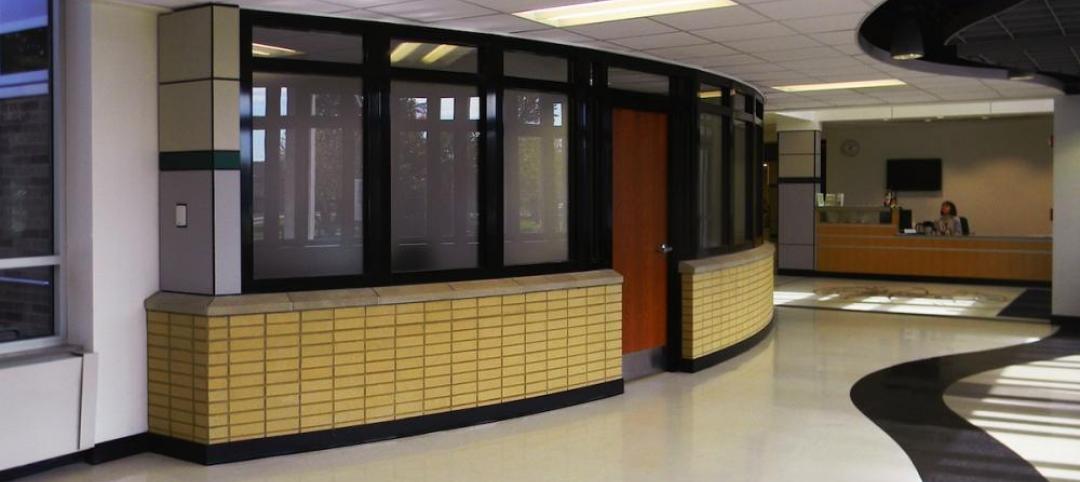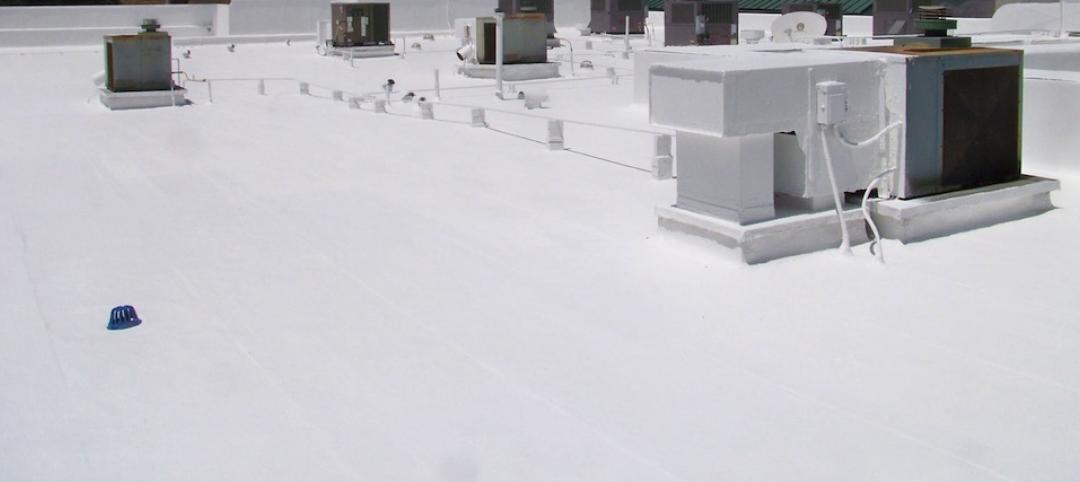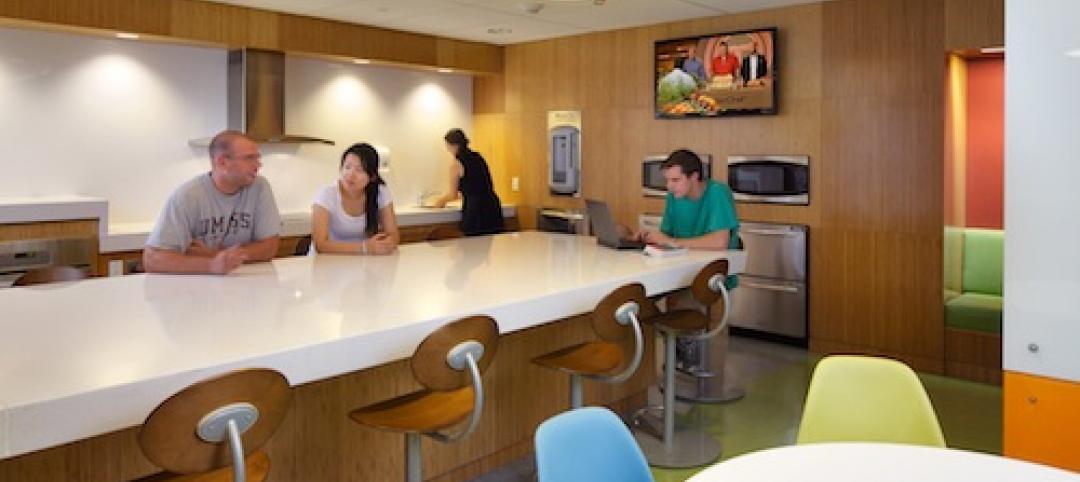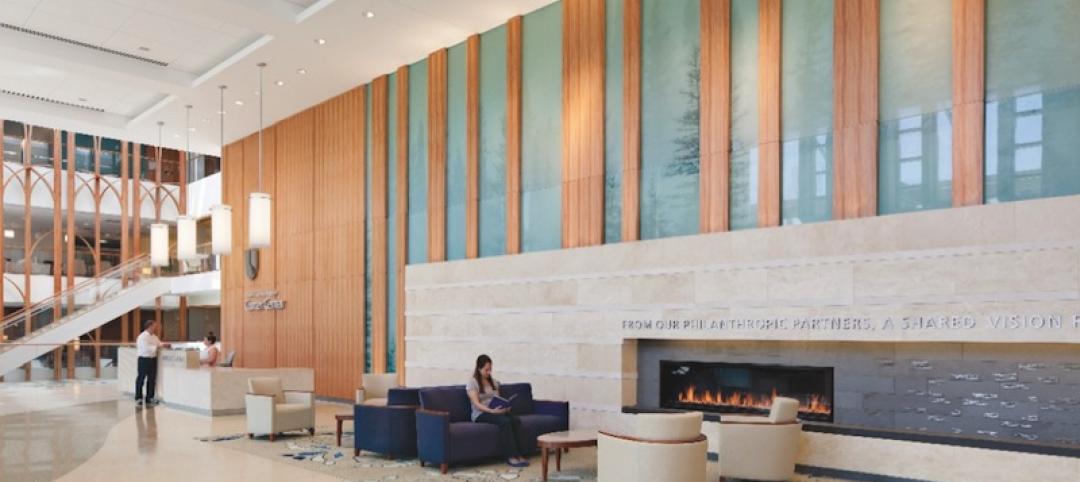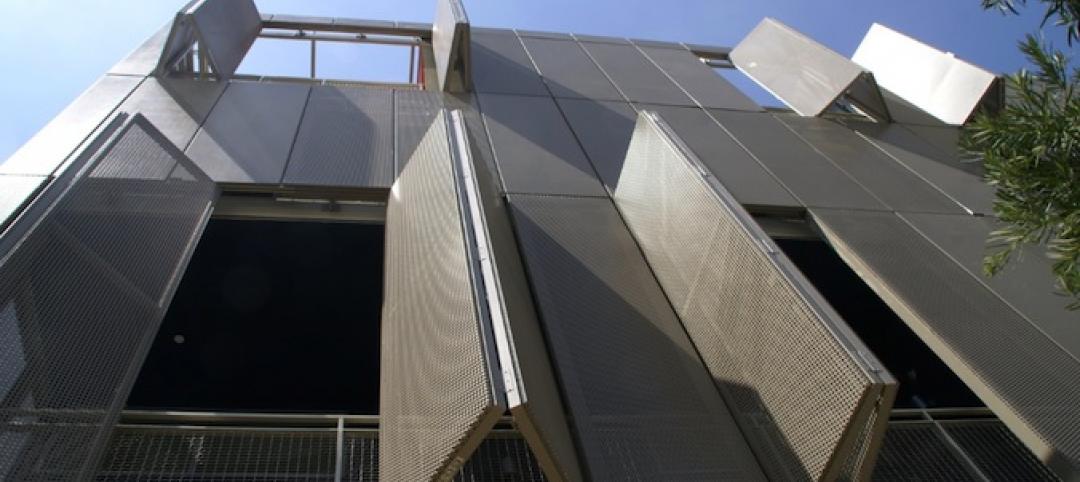The newly designed 312,000-sf Loyola University Campus in Seville, Spain has become the world’s first integrated campus to receive LEED Platinum, the highest environmental rating by the U.S. Green Building Council. The multipurpose facility, which also aims to be the first ‘5G Campus’ in the world, was designed to accommodate numerous aspects of learning and university life.
The $29 million project places all of the classrooms, laboratories, and common spaces (including the cafeteria and auditorium), which totals 265,000-sf, in a single, optimized building. The sports building, library, lockers, access building, and chapel, which totals over 47,000-sf of additional space, complete the complex.
Given Seville’s Mediterranean climate, where high temperatures are often the norm, special attention was paid to controlling sunlight. “The project makes use of the lessons learned in T2 at Heathrow Airport in the U.K., and incorporates textile technology – the design of an external element, ‘the candle,’ which controls the light that penetrates the buildings,” said Luis Vidal, President and Founding Partner at luis vidal + architects, in a release. “The campus also consists of a sequence of open and closed spaces, designed to provide self-shading.”
See also: Students aren’t the only ones who have returned to Austin College in Texas
Winter/summer plazas change with the seasons to provide comfortable outdoor space for students. During summer these plazas benefit from the sun shading of the buildings, generating spaces sheltered from the Western sunlight. In addition, the presence of water cools down the temperature and creates a microclimate of a certain comfort. During winter plazas heat up with sunlight, in its lowest angles of incidence and, they are protected from the prevailing winds.
The campus’ roof, facades, and windows were designed to minimize sizable energy losses. Photovoltaic panels were also installed to reduce the net-energy consumption of the building. A water recovery system was also incorporated. More than 20% of the building materials come from previous uses, and more than 30% of the materials were locally extracted from the surrounding area.
Project construction was wrapped in 17 months.
Related Stories
| Jun 3, 2013
Construction spending inches upward in April
The U.S. Census Bureau of the Department of Commerce announced today that construction spending during April 2013 was estimated at a seasonally adjusted annual rate of $860.8 billion, 0.4 percent above the revised March estimate of $857.7 billion.
| May 20, 2013
Jones Lang LaSalle: All U.S. real estate sectors to post gains in 2013—even retail
With healthier job growth numbers and construction volumes at near-historic lows, real estate experts at Jones Lang LaSalle see a rosy year for U.S. commercial construction.
| Apr 30, 2013
Tips for designing with fire rated glass - AIA/CES course
Kate Steel of Steel Consulting Services offers tips and advice for choosing the correct code-compliant glazing product for every fire-rated application. This BD+C University class is worth 1.0 AIA LU/HSW.
| Apr 24, 2013
Los Angeles may add cool roofs to its building code
Los Angeles Mayor Antonio Villaraigosa wants cool roofs added to the city’s building code. He is also asking the Department of Water and Power (LADWP) to create incentives that make it financially attractive for homeowners to install cool roofs.
| Apr 2, 2013
6 lobby design tips
If you do hotels, schools, student unions, office buildings, performing arts centers, transportation facilities, or any structure with a lobby, here are six principles from healthcare lobby design that make for happier users—and more satisfied owners.
| Mar 14, 2013
25 cities with the most Energy Star certified buildings
Los Angeles, Washington, D.C., and Chicago top EPA's list of the U.S. cities with the greatest number of Energy Star certified buildings in 2012.
Building Enclosure Systems | Mar 13, 2013
5 novel architectural applications for metal mesh screen systems
From folding façades to colorful LED displays, these fantastical projects show off the architectural possibilities of wire mesh and perforated metal panel technology.


